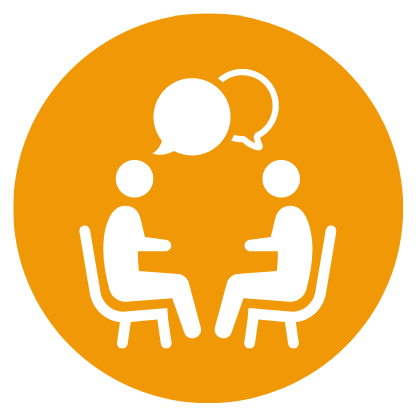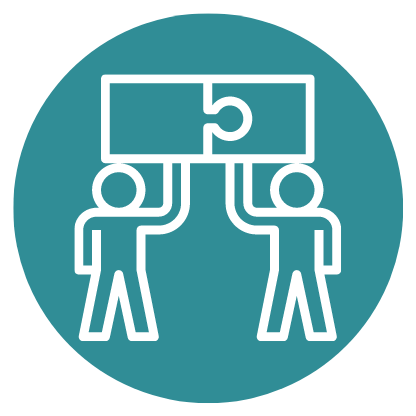SS08: How to Become a Better Negotiator | CrashCourse
Reference: CrashCourse. (2019, May 01). How to Become a Better Negotiator: Crash Course Business - Soft Skills 8 [Video]. YouTube.
We Make Your Education Count

Get the Credit You Deserve and Become the Most Attractive Job Candidate by Earning and Posting A+ Badges to Your Linkedin Profile.
Sign Up to Get Started at Accredicity
|
Unlock the secrets of successful negotiation - learn how to collaborate and avoid pitfalls with Crash Course Business: Soft Skills 8. In this Crash Course Business: Soft Skills video, Evelyn from the Internets teaches viewers how to become a better negotiator. Evelyn explains the concept of negotiations as a process of resolving conflict through collaboration and provides tips for starting negotiations, posing counter-offers, avoiding pitfalls, and making sure everyone plays fair. She also explains why the first number in a negotiation matters and the concept of anchoring. To find creative solutions, she advises to listen more and talk less. Additionally, Evelyn provides an example of an integrative negotiation and the 'I-We' strategy for advocating for yourself. Finally, she warns against using hardball tactics as they erode trust and don't always work. Learning Outline1. Start off strong by not opening with a range of prices and not taking the first offer given. Instructional ContentNegotiation is an essential part of business, and it's important to learn the basics to be successful. Learning how to become a better negotiator can help you get the results you want in any situation. In this Crash Course Business: Soft Skills video, viewers will learn how to become a better negotiator. The video explains key concepts such as the importance of starting with a clear goal, understanding the other person’s point of view, and avoiding hardball tactics. It also explains the importance of avoiding anchoring, which is when the first number offered is accepted without further negotiation. Additionally, the video explains how to use integrative negotiation to achieve creative solutions and how to use the “I-We” strategy to advocate for yourself. This video provides viewers with the essential tips and tricks they need to become a better negotiator. By understanding the basics of negotiation, viewers will be able to get the results they want in any situation. This video will help viewers feel more confident and empowered when it comes to negotiation, allowing them to achieve success in any situation. Communication
|

Negotiating is all about working with someone else to resolve a problem. It's like two people trying to decide how to share a piece of pie. To become a better negotiator, you need to be confident and prepared. You should know your goal and have an alternative to your target, like a cheaper option if the other person won't agree. It's important not to start with a range of prices, because the other person will just pick the one that works in their favor. When you make a counteroffer, be patient and don't bargain against yourself. Listen more and talk less, so you can find creative solutions. Finally, don't use hardball tactics like ultimatums, because it will hurt your credibility and trust. Video Quotes1. "Negotiations are all about resolving conflict through collaboration. You’re not actually trying to “crush the competition.”" - Evelyn from the Internets Related Quotes"A successful negotiation is one where both parties leave the negotiation feeling like they have benefited." - Charlie Gilkey "Negotiation is the art of finding the best possible outcome in the face of conflicting interests." - Nicole Miller "Negotiation is a dialogue between two or more parties intended to reach a mutually beneficial outcome." - John Ospina Competencies1. Negotiation Learning Outcomes1. Understand the concept of distributive negotiation and how to approach it to gain the most leverage (Knowledge) Sample Answers1. I have learned that it is important to have a clear goal and to be prepared with questions, alternatives, and a target price before negotiating. I have also learned that it is important to start off strong and not to give away too much information before finding out what the other person is offering. Finally, I have learned that it is important to use the ‘I-We’ strategy to focus on how the skills I bring to the table can benefit the company. 2. I have learned that it is important to be patient and confident when negotiating and not to jump in too quickly. I have also learned that it is important to be aware of anchoring and not to be influenced by the first offer. Finally, I have learned that it is important to listen more and talk less and to look for creative solutions that benefit both parties. 3. I have learned that it is important to not use hardball tactics, ultimatums, or bluffs, as these can erode trust and are not always effective. I have also learned that it is important to take the time to think and weigh my options before accepting a job offer. Finally, I have learned that it is important to be aware of my worth and to advocate for myself when negotiating salary. Evelyn from the InternetsEvelyn from the Internets is a Negotiations Expert, Author, and Lecturer at Harvard and MIT. She is the founder of the Negotiation Mastery Institute and is a sought-after speaker and consultant on negotiation and dispute resolution. Evelyn has served as an expert witness in litigation, has been featured in the Wall Street Journal, and has authored numerous books and articles on negotiation and dispute resolution. She is an experienced negotiator who has worked with Fortune 500 companies, government agencies, and non-profits. Evelyn is an expert on Become a Better Negotiator due to her vast experience in the field and her impressive credentials.Evelyn from the Internets Learning DesignThese three competencies are essential to successful communication and collaboration. Negotiation is a crucial skill when trying to resolve conflicts or reach agreements, while collaboration and coordination help facilitate teamwork and ensure everyone is on the same page. Emotional intelligence is important for understanding the feelings of others and how those feelings may affect communication. In order to help students build these competencies, an instructional designer can use a variety of frameworks and pedagogies. For example, the flipped classroom model allows students to learn the material independently before coming to class, allowing for more in-depth discussions and activities during class time. Role-playing activities can be used to practice negotiation skills and build interpersonal awareness. Group work activities can give students an opportunity to practice collaboration and coordination. Other activities like debates and simulations can also be used to help students understand how to handle different scenarios. Finally, emotional intelligence can be built through activities like self-reflection and analysis of emotional situations. By using these various frameworks and pedagogies, an instructional designer can help students learn the essential competencies of communication and collaboration. AssessmentQ: What is an example of a hardball tactic that is not advised when it comes to negotiation? QuestionsCommon Questions: Real-Life Questions: KeywordsNegotiation Style, Creative Solutions, Emotional Influence, Salary Negotiation, Integrative Negotiation, Anchoring Effect, Distribute Negotiation, Hardball Tactics, Resistance Point, I-We Strategy Facts1. Negotiation strategies such as anchoring and the 'I-We' strategy can help you get the best deal. Trends1. Reach out to the other party before the negotiation and discuss common interests. This can help build trust and understanding and make the negotiation session more collaborative. 2. Join a negotiation support group to practice your skills and receive feedback from experienced negotiators. 3. During negotiations, focus on the “I-We” approach to emphasize the mutual benefits of the deal. SourceThis learning instructional guidance was formulated using the GPT-3 language model created by OpenAI. ShareLearn the rules of negotiation & how to collaborate to get the best deal! Avoid pitfalls, be patient & confident, & use the "I-We" strategy to advocate for yourself. #Negotiation #SoftSkills 🤝 @Accredicity |








 16 Creds - Communication
16 Creds - Communication



